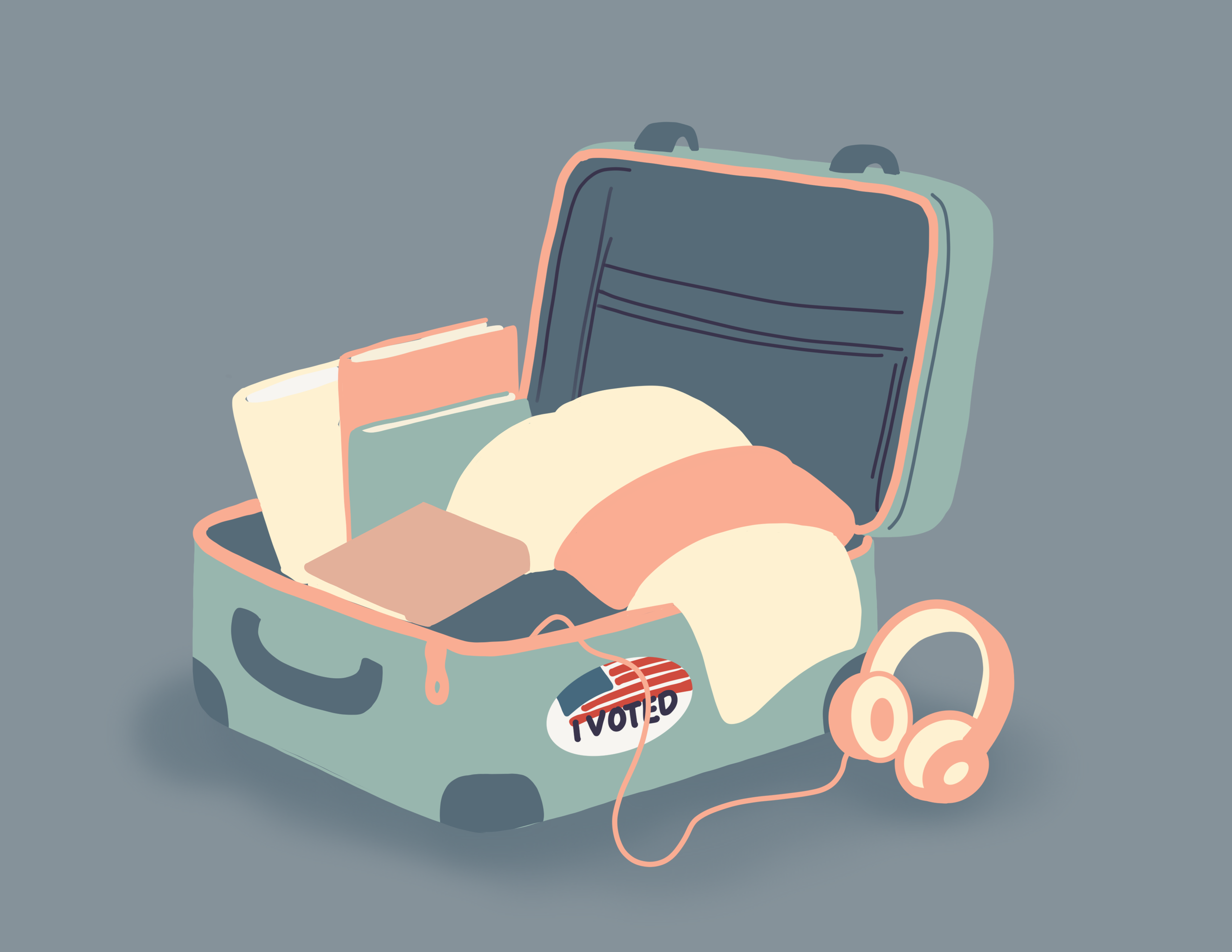Coping with post-election, pre-holiday stress
Illustration by Yana Samoylova, Staff Illustrator
Not everyone at Chapman is happy to be going home for the holidays.
Whether it’s stress, disappointment or panic about returning home to a family with differing viewpoints, some students are struggling with mixed feelings about Thanksgiving break. Others are still in shock about the presidential election results, which have shaken a lot of people who are disheartened and concerned about the future.
James Moore, a senior political science major and senior advisor of the Chapman Democrats club, is one student who felt let down by the election outcome. He noticed that others around him were dismayed, too.
“I’m still kind of surprised by the outcome,” said Moore.
He recommended some ways for students who are experiencing stress to cope with these emotions, suggesting that people can get more involved within their immediate community to feel like they are making a difference.
“Something to console people who are stressed is focusing on the community around you,” said Moore. “Help other people who are around you; I absolutely believe that that’s super important.”
Moore said that this is advice he has been hearing from a lot of people in his life. Some ways students can incorporate this into their lives are volunteering, seeking out education on local and national political issues and supporting local change initiatives.
“If you feel like the world is really not going the way you want it to, you can at least look at the world immediately in front of you and see what you can do,” said Moore.
On the other hand, some students are planning on going home to families who do not share similar values as them, which piles more added stress onto their plate.
Junior strategic and corporate communication major Tess Garner isn’t going home to New Jersey for Thanksgiving, but she is planning to fly back for winter break a few weeks later.
Garner considers herself to be politically active, especially when it comes to social issues. She often finds herself butting heads with members of her family, who have very different political views.
“I’ve been pretty nervous about how those conversations are going to look,” said Garner. “I’m a biracial, queer woman, and my dad is an old British white man, so a lot of our views are pretty different.”
This is the case for quite a few students who are going home and celebrating the holiday season with families of conflicting mindsets.
“I am the only daughter who really stands up to my dad about politics,” said Garner. “When it comes to civil liberties and civil rights, I feel that I am very well educated, and I stand up to my dad a lot about that because I know that my sisters won’t.”
A lot of stress can come from these difficult conversations at the dinner table. The generation gap of political opinions can make students feel disconnected from their families, especially in times like these.
“(The election) has definitely added some stress for me, because I am a biracial, queer woman,” said Garner. “That’s not a great thing to be with (President-elect Donald) Trump as the president. And it can be very difficult to approach those conversations.”
Students can take this opportunity to become more involved politically and solidify their own identities — which is what Garner hopes to take from her own experience in discussing these matters with her family.
“It is difficult to be the daughter that stands up and talks back to him,” said Garner. “But I also think that the fact that it makes me uncomfortable — it also makes me really proud. It means that I’m educating my dad, that I’m opening him up to other viewpoints and teaching him why things should matter.”

